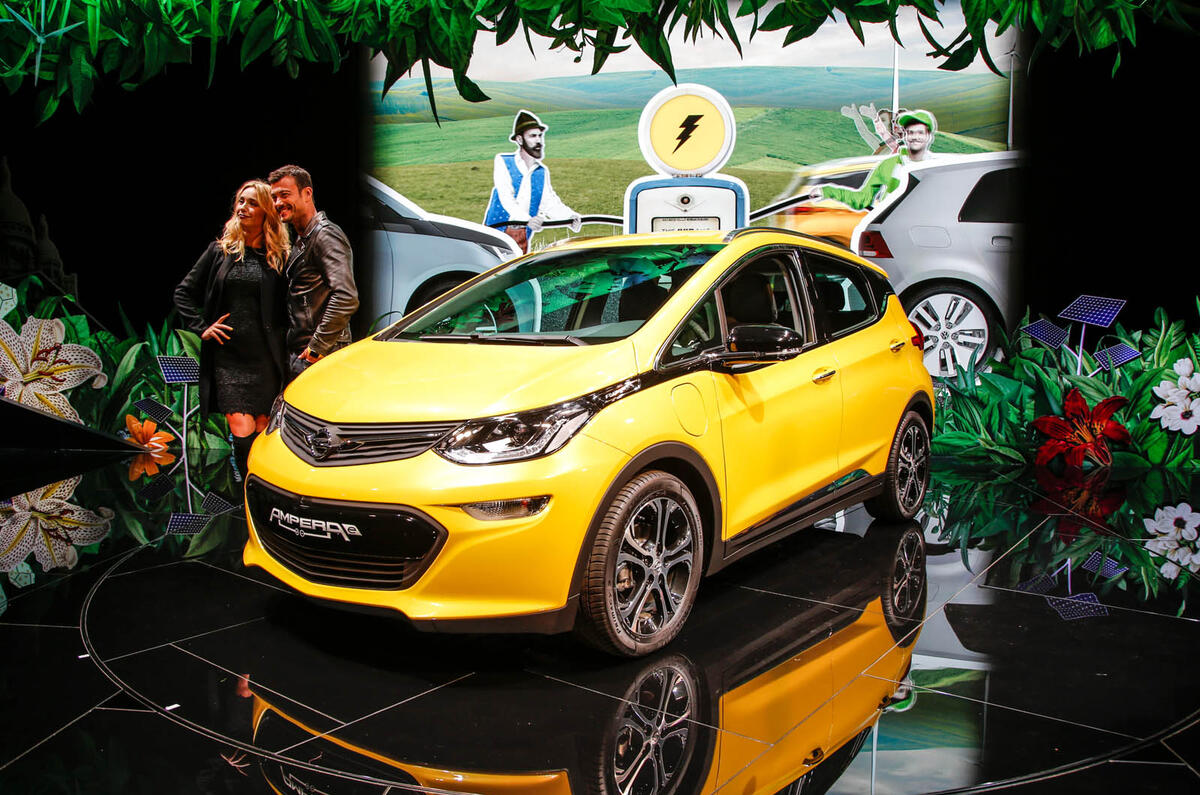The increased globalisation of the car industry means that “no plans for right-hand drive” has become a less-used excuse in recent years. Yet it still gets the occasional airing, including – perplexingly – when it comes to the new Opel Ampera-e.
The Opel version of the US's Chevrolet Bolt is set to go on sale across Europe next spring with a claimed range that makes the Nissan Leaf look like a glorified golf kart. The problem for British would-be buyers is that we’re not going to get it, because GM has refused to sanction right-hand drive production.
Normally we get told that left-hand-drive-only models are denied to us by either tiny potential sales or deep-rooted engineering problems. Some of Mercedes’ 4Matic all-wheel drive systems are incompatible with a right-hand drive steering box, for example, and there’s rarely a case to be made for moving the steering wheel on a hypercar that's only going to sell in tiny numbers.
However, that’s not the case with the Ampera-e. The thing is basically a battery pack on wheels, so it’s hard to see that its compact electrical motor is any obstruction to putting the steering column down the right of the car. Additionally, by the modest standards of the EV market, the UK has always bought well enough. Vauxhall shifted 1350 of the first-generation Ampera in Britain, with the steering wheel on the correct side, making us its third-biggest market in Europe.
Yet with GM anticipating that we’ll see a rush to electrification over the next five years, the company is already reconsidering the decision to effectively exclude a third of the world’s car markets from its bright new future. Opel’s marketing boss Tina Müller said in Paris that the company is committed to bringing a right-hand-drive EV to the market, either as an evolution of the Ampera-e or as a separate model.
So, the hole is going to be filled in. It just seems odd that it's there in the first place.





Join the debate
Add your comment
Globalisation of cars
There are so many legislative differences between what is considered acceptable in different countries for all sorts of reasons. We have all heard about the stricter US emission laws but even in the US the emission limits vary between states. The US allows lap only seat belts including side facing seats, something outlawed in the EU. There are many obstacles preventing true globalisation of cars, most bring laws to protect home markets from those awful foreigners. Just try filling up an LPG gas tank throughout Europe, you will need several different adaptors in different countries. The rule on tyre pressure monitors is ompletely different between the US and EU and the list of differences is almost endless.
Compliance?
"Compliance car" has become a byword for underdeveloped, half-hearted EVs (see Smart EV, Fiat 500e etc.), which does not remotely describe the amazing Volt and Bolt, but it would certainly explain the extraordinarily lax sales approach of GM's dealership network.
GM HQ's been trying to convince the public that they're serious about these vehicles, but the decision to exclude so many key markets for the Bolt and mk2 Volt does make them look like compliance vehicles.
Not just Vauxhall.
Correction